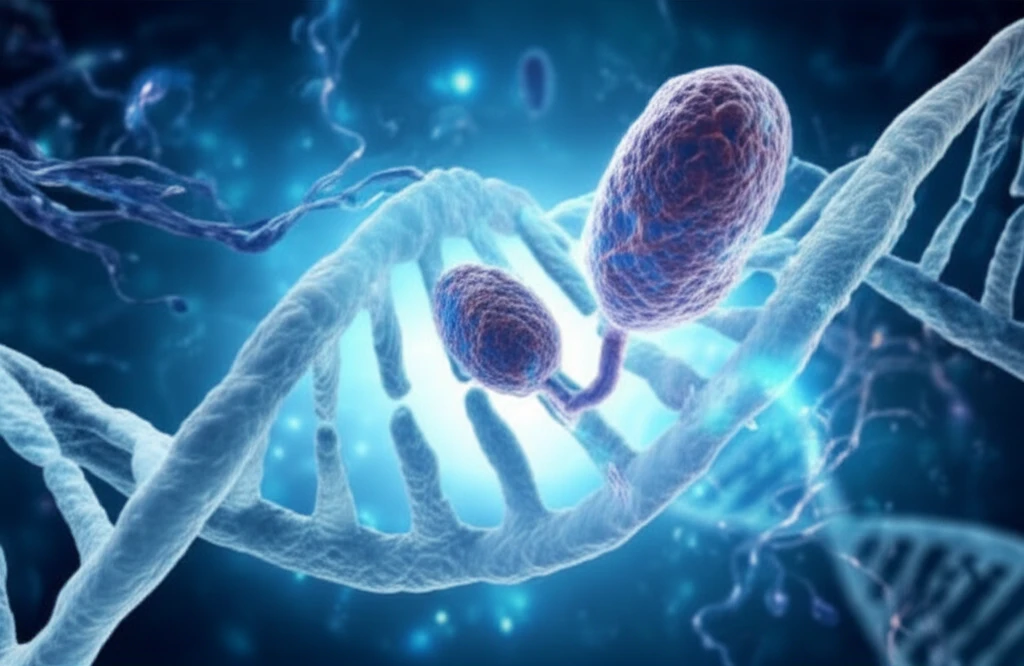
Prostate Cancer Advances: What You Need to Know About Genetics, Imaging, and Treatment
"A Comprehensive Update on Advanced Prostate Cancer: Genetics, Imaging, and Cutting-Edge Therapies"
The landscape of advanced prostate cancer treatment is rapidly evolving, demanding a multidisciplinary approach. No longer confined to traditional methods like hormone therapy, surgery, and radiation, today's management integrates chemotherapy, immunotherapy, radiopharmaceuticals, and a deeper understanding of molecular medicine.
This transformation requires expertise in molecular pathology, genetics, and genetic counseling, emphasizing the need for collaborative specialist teams. These teams are crucial for delivering optimal, advanced prostate cancer care.
This article will focus on pivotal areas: germline genetics, advances in treating castrate-sensitive metastatic disease, the significance of androgen receptor (AR) alterations, emerging targeted therapies, and novel radiopharmaceuticals. Gain the latest insights into how these concepts are transforming the treatment of advanced prostate cancer.
Decoding Genetics: How DNA Changes the Game in Prostate Cancer

One of the most significant shifts in prostate cancer management is the increasing importance of germline genetics. The availability of new information on DNA and various gene mutations has revolutionized our understanding of the disease.
- NCCN Guidelines: Reflecting this understanding, the National Comprehensive Cancer Network (NCCN) guidelines now recommend that all men with metastatic prostate cancer be considered for germline genetic testing.
- Key Genes: The genes of particular interest include BRCA2, CHEK2, ATM, BRCA1, PALB2, GEN1, and RAD51D, all of which play vital roles in DNA repair.
- Expanded Testing Criteria: Genetic testing consideration extends to men without metastatic disease but who have pelvic nodal metastasis or are classified as high-risk or very high-risk, such as those with Gleason scores of 8-10.
- Lifetime Risk: Men with BRCA2 mutations may face a lifetime prostate cancer risk approaching 30-40%, though this can be influenced by other genetic factors.
Looking Ahead: The Future of Prostate Cancer Treatment
Recent progress in advanced prostate cancer spans genetics, imaging, and novel therapeutics. The future likely involves combining multiple drugs to increase the chances of a cure.
Improved staging through molecular imaging will help identify individuals who can be cured with localized therapies and those who require more intensive treatment. Effective treatment of advanced cancer will probably require multitarget therapy, addressing the AR, the immune system, and other specific targets.
Novel combinations and personalized approaches are essential for continued progress in treating this complex disease. By integrating these advancements, healthcare professionals can optimize outcomes and improve the quality of life for individuals facing advanced prostate cancer.
